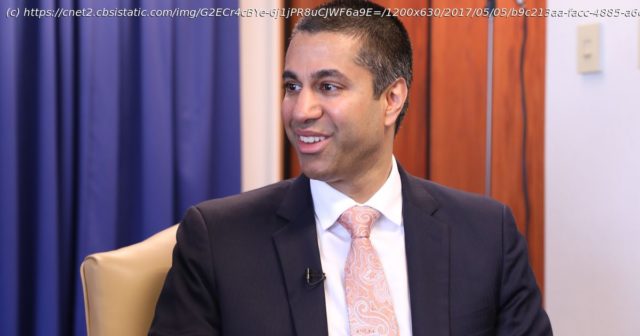Ajit Pai, chairman of the Federal Communications Commission, will step down Jan. 20, the agency said in a release Monday. He was appointed by President Donald Trump, …
Ajit Pai, chairman of the Federal Communications Commission, will step down Jan.20, the agency said in a release Monday. He was appointed by President Donald Trump, who took office in 2017, and will leave on the day Trump’s successor, Joe Biden, is inaugurated. „It has been the honor of a lifetime to serve at the Federal Communications Commission, including as chairman of the FCC over the past four years,“ Pai said in the release. „I am grateful to President Trump for giving me the opportunity to lead the agency in 2017, to President Obama for appointing me as a Commissioner in 2012, and to Senate Majority Leader McConnell and the Senate for twice confirming me. To be the first Asian American to chair the FCC has been a particular privilege. As I often say: only in America. As the White House shifts from Republican to Democratic control, Jessica Rosenworcel, currently on the FCC, and Mignon Clyburn, a former commissioner, are thought to be the leading candidates to succeed Pai, Variety reported Friday. Pai will likely be best remembered for his contentious deregulation of Obama-era net neutrality rules. In 2017, the Republican-led agency adopted the Restoring Internet Freedom Order, which repealed rules passed by a Democrat-controlled FCC in 2015. The net neutrality rules repeal took effect in June 2018, even after the Senate voted in a bipartisan manner to nullify the agency’s vote to dismantle the regulation, which much of the public supports. Net neutrality is the principle that all traffic on the internet must be treated equally. It requires internet service providers to prohibit slowing or blocking access to web sites, and it prohibits companies that control internet access from favoring their own services and content over a competitor’s content or services. It also prohibits broadband companies from offering „fast lanes“ to online companies who want their services and content to be delivered faster than that of a competitor. Pai and the two other Republicans on the FCC, Brendan Carr and Michael O’Rielly, claimed the FCC’s rules stifled broadband companies‘ investment in network upgrades, harming sector innovation and job growth. Specifically, they argued that the reclassification of broadband as a utility-like service could give the FCC the power to regulate rates, which they claimed chilled investment from the private sector in broadband. In the year since the repeal took effect, Pai has claimed that investment in broadband increased. But earnings reports, independent research and statements from broadband company CEOs show no clear evidence that the repeal had any effect on investment in the broadband sector. More recently Pai’s FCC has come under fire for supporting Trump’s attempt to use the FCC to punish social media giants for claims that companies like Facebook and Twitter are censoring conservative voices online.






